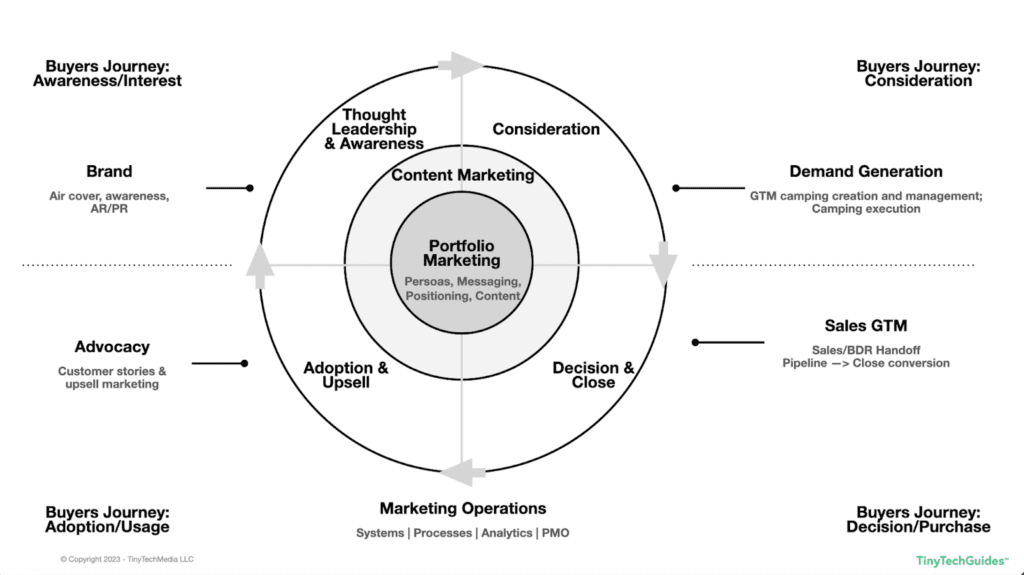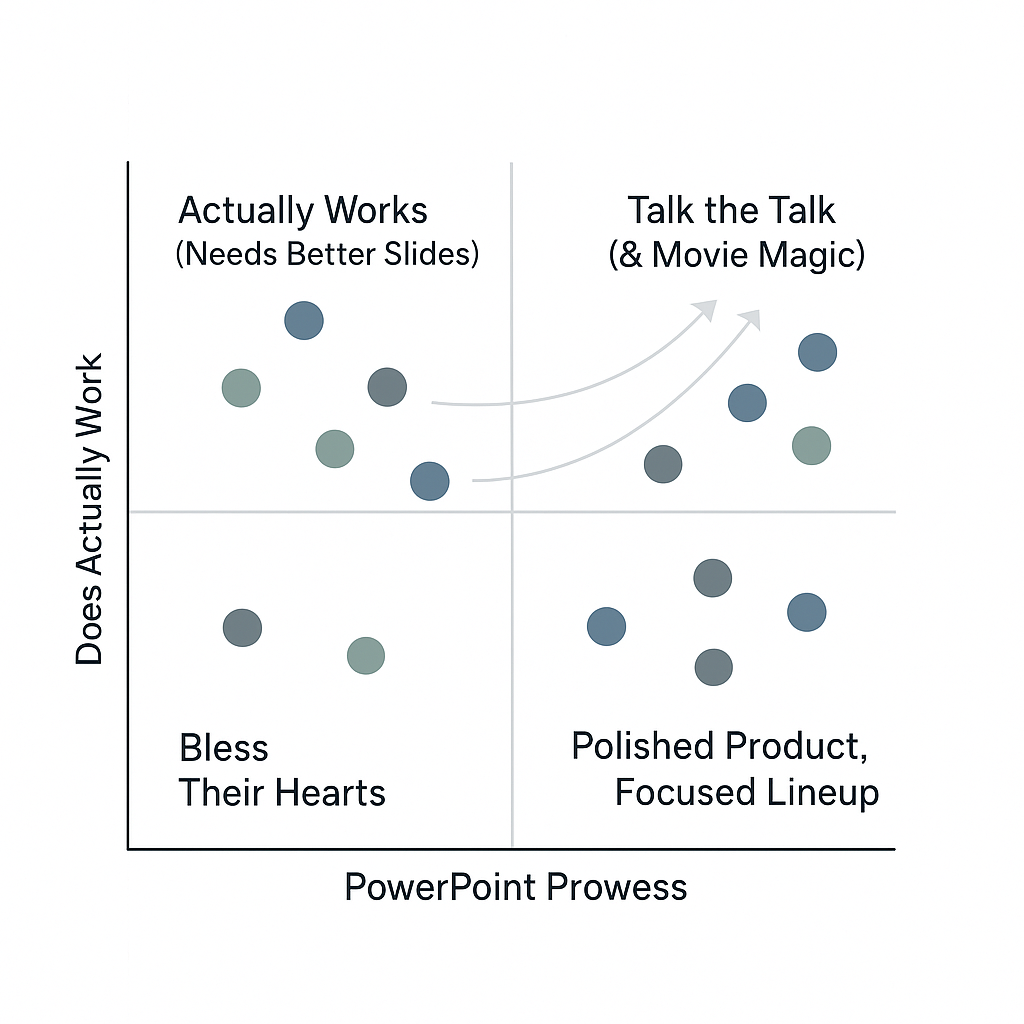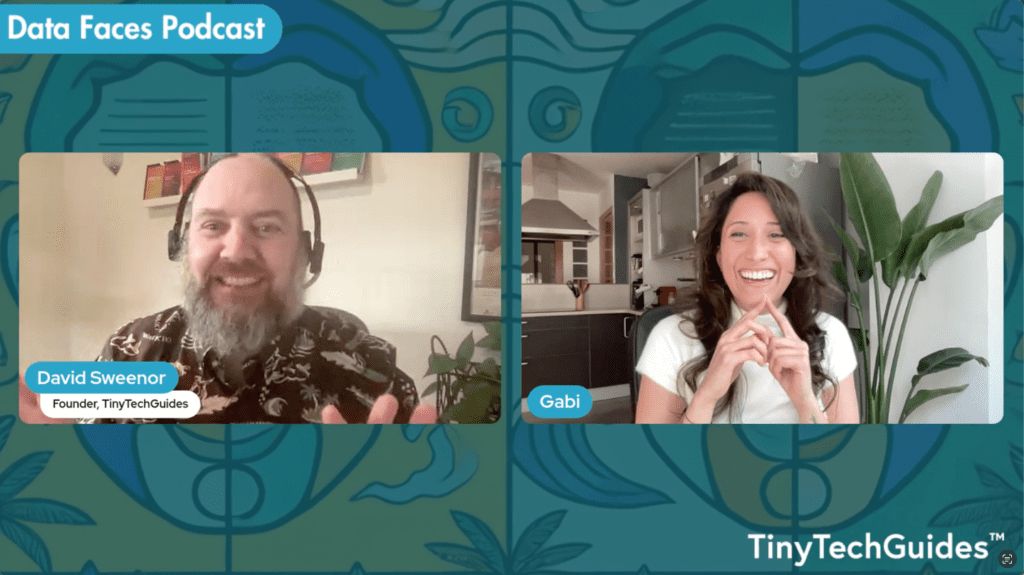
In Part 1 of this series, we discussed the parallels between the current hype surrounding artificial intelligence (AI)–especially with ChatGPT and Bard with three other transformative technological changes that molded human history. These included:
- The Industrial Revolution (Water + Steam = Mechanized Production)
- Digitization (Electronics + IT = Automated Production)
- The Age of AI (Data + Analytics + Automation = Automated/Augmented Decisions + Automated Content Generation).
Throughout each of these transformations, there were skeptics and cynics, as well as hopeful visionaries and dreamers. In Part 2, we will explore how AI is currently used for B2B marketing in organizations.
Marketing has always been awash in data and it shouldn’t surprise anyone that AI has been used in digital marketing for quite some time. In fact, a survey by an analyst firm highlighted that 67% of marketers were already using AI in 2022 compared to 33% who were not.[i] For the most part, AI is being used where two conditions exist:
- The tasks are well defined and repeatable
- The data is relatively self-contained
Let’s expand on this a bit further.
A Brief Primer on Marketing Systems
Before we can clarify the two conditions above, we have to have a high level understanding of the various systems that are used for marketing. Let’s take a quick look at what systems B2B marketers typically use.
- Customer Relationship Management (CRM) Systems: CRMs store detailed information about customers and leads, including their contact information, purchase history, interactions with the company, and more. G2 lists 850 different CRM systems currently on the market.
- Marketing Automation Platforms: These tools take the monotony out of marketing and automate repetitive tasks such as email marketing, social media posting, and demand generation campaigns. These systems track performance and provide data on engagement and conversion rates.
- Conversion Automation Tools (Chatbots and Virtual Assistants): These tools help automate and enhance customer interactions which improve engagement and conversion rates.
- Content Management Systems (CMS): CMS’ help marketers manage and publish content–from blog posts to landing pages. Often, they provide analytics on content performance across a variety of metrics.
- Social Media Management Platforms: These platforms allow organizations to automate social posts and often have capabilities that allow anyone in the organization to schedule approved social posts created by the company. They provide data on customer behavior, engagement and sentiment.
- Web Analytics Tools: These tools track and analyze website traffic, providing data on things like visitor behavior, referral sources, and conversion rates. Google Analytics is probably the most frequently used web analytic tool in B2B marketing.
- Search Engine Optimization (SEO) Tools: SEO tools provide data on keyword rankings, backlinks, and website performance which help marketers optimize their content for search engines.
- Customer Data Platforms (CDP): CDPs aggregate and organize data from various sources into a unified customer database, enabling a more comprehensive view of customer behavior and preferences.
- Account-Based Marketing (ABM) Platforms: ABM tools help marketers target specific high-value accounts with personalized campaigns. They provide data on account engagement and campaign performance.
- Business Intelligence and Analytics Tools: Data and analytic platforms help marketing ops analysts aggregate and analyze data from all of the disparate data sources across the organization to help provide insights and inform decision making.
So, how is AI currently being used within these systems?
Current Applications of AI
Now that we understand what systems are commonly used in B2B marketing organizations, the next question that comes to mind is how AI is currently embedded in these systems.
CRM Systems
- AI is used to automate data entry and cleansing, improving the accuracy and usefulness of CRM data.
- CRM data is used to predict and anticipate customer behaviors, helping sales and marketing teams target their prospects more effectively.
- AI provides recommendations for next steps or optimal communication methods based on the historical data of a contact or similar profiles.
Marketing Automation Platforms
- AI optimizes marketing campaigns in real-time, adjusting parameters like send time, subject line, and content to improve performance.
- Predictive analytics is used to identify the most promising leads, improving the efficiency of lead nurturing efforts.
- Personalization algorithms tailor content to individual leads based on their behaviors and preferences, improving engagement and conversion rates.
SEO Tools
- AI automates keyword research, identifying the most promising keywords based on factors like search volume, competition, and relevance.
- Predictive analytics forecasts changes in keyword performance, helping marketers to stay ahead of SEO trends.
- Natural language processing (NLP) analyzes the readability and relevance of content, providing suggestions for optimization.
Social Media Platforms
- AI optimizes the timing and content of social media posts to maximize engagement.
- Sentiment analysis monitors social media for mentions of a brand, providing insights into customer sentiment and brand reputation.
- Analytics identifies trending topics and influencers, helping marketers target their social media efforts more effectively.
Conversion Automation Tools (Chatbots and Virtual Assistants)
- NLP improves the ability of chatbots and virtual assistants to understand and respond to customer queries.
- Machine learning (ML) algorithms enable chatbots and virtual assistants to learn from each interaction, improving their performance over time.
- Predictive analytics anticipates customer needs based on previous interactions, enabling proactive customer service.
What’s Next?
So, how will AI impact the modern marketing organization? Given that AI is already pervasive in digital marketing, this begs the following set of questions:
- What’s next?
- How will it affect my job?
- How will it affect my organization?
- How can we prepare?
These are all great questions which will be explored in subsequent posts using the Modern B2B marketing framework.

Make sure you sign up for the newsletter so you don’t miss out.
If you want to learn more about Modern B2B Marketing, check out our latest book on Amazon.
Are you still confused by AI, pick up a copy of Artificial Intelligence: An Executive Guide to Make AI Work for Your Business.
[i] Johnson, Jessie, Katie Linford, Steven Casey, Lauren Bedford, and Arianne Burnette. 2023. “The State of AI in B2B Marketing, 2022.” Forrester. Forrester Research. https://www.forrester.com/report/the-state-of-ai-in-b2b-marketing-2022/RES178938.
Categories
- AI Trends (8)
- Analytics Leadership (10)
- Artificial Intelligence (52)
- Data Faces Podcast (5)
- Data Leadership (3)
- Marketing (18)
- Modern Data Stack (3)
- News (8)
- Tech News (1)
Latest Posts
- Stop Chasing Hallucinations—Focus on Agentic Quality
- Gartner’s Four-Box Foreteller of Fortunes (and FUD)
- From “AI-Ready” to AI Reality: Why Actionable Data Strategies Beat Endless Planning
- Team Dynamics Over Technology: The Human Elements that Drive AI Success
- The Customer Hero Principle: Why Your B2B Messaging Falls Flat



